detail profile bernard haitink
Peran Yang Di Mainkan Bernard Haitink
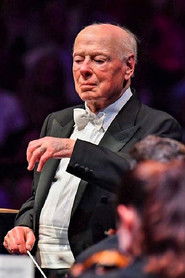 After conducting for 65 years Bernard Haitink...
After conducting for 65 years Bernard Haitink...Bernard Haitink: The Enigmatic Maestro 2020
After conducting for 65 years, Bernard Haitink has retired at the age of 90. The musicians he has worked with are puzzled by the secrets of his technique. He himself says his job is to embrace the orchestra without suffocating them.
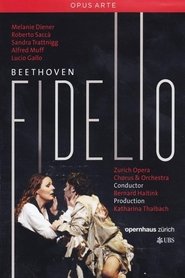 Translucence transparency warmth are the qualities...
Translucence transparency warmth are the qualities...Fidelio - Beethoven - Opernhaus Zürich 2008 2008
Translucence, transparency – warmth’ are the qualities identified by Bernard Haitink as necessary for an ideal sound performance of Beethoven's only opera, and all are present in this fantastic recording of Katharina Thalbach's 2008 production for Opernhaus Zurich. Haitink conducts the Zurich Opera Orchestra in a magnificent performance in which Leonore Overture No. 3 provides an interlude between the two scenes of the second act, following a tradition started by Gustav Mahler. German soprano Melanie Diener, in the role of Leonore, leads a brilliant cast including Alfred Muff as Rocco, Roberto Saccà as Florestan, Sandra Trattnigg as Marzelline and Christoph Strehl as Jaquino. This High Definition recording with true surround sound marks the start of the exciting collaboration between Opus Arte and Opernhaus Zurich.
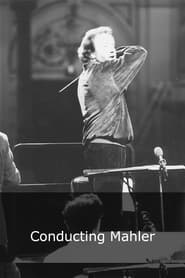 Documents the interpretations of Gustav Mahlers...
Documents the interpretations of Gustav Mahlers...Conducting Mahler 2002
Documents the interpretations of Gustav Mahler's compositions by conductors Bernard Haitink, Riccardo Chailly, Riccardo Muti, Claudio Abbado, and Simon Rattle, who detail the special relationship they have with Mahler's work.
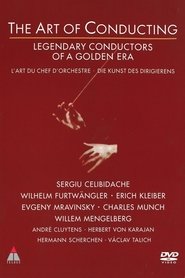 Following the success of the Art...
Following the success of the Art...The Art of Conducting - Legendary Conductors of a Golden Era 1997
Following the success of the Art of Conducting-Great Conductors of the Past, this second edition focuses on a further six of the twentieth century's greatest conductors, complemented by commentary from music personalities who knew the artists firsthand. Rare film clips are also included of Herbert von Karajan, Hermann Scherchen, Andre Cluytens and Vaclav Talich.
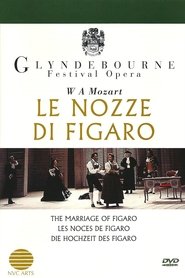 The Marriage of Figaro is a...
The Marriage of Figaro is a...Le nozze di Figaro 1994
The Marriage of Figaro is a continuation of the plot of The Barber of Seville several years later, and recounts a single "day of madness" in the palace of the Count Almaviva near Seville, Spain. Rosina is now the Countess; Dr. Bartolo is seeking revenge against Figaro for thwarting his plans to marry Rosina himself; and Count Almaviva has degenerated from the romantic youth of Barber into a scheming, bullying, skirt-chasing baritone. This follows the Count trying to obtain favours from Susanna, Figaro's bride to be, under the nose of the Countess.
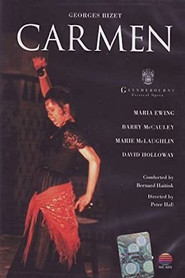 Don Jos is a guard who...
Don Jos is a guard who...Carmen - Glyndebourne Festival Opera 1985
Don José is a guard who begins an affair with the tempestuous Carmen. He is imprisoned and loses his job, then flees with her to the mountains. When the relationship starts to break down José refuses to acknowledge it and will not leave, even when he gets news that his mother is dying. Carmen, meanwhile, has taken up with the bullfighter Escamillo. Bizet's most famous opera is brought to the Glyndebourne Festival Opera by Sir Peter Hall, with Maria Ewing and Barry McCauley heading an international cast.
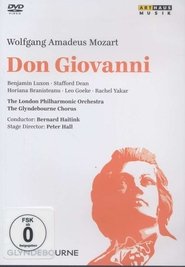 Since its debut in 1934 the Glyndebourne...
Since its debut in 1934 the Glyndebourne...Don Giovanni 1977
Since its debut in 1934 the Glyndebourne Festival has put a focus on Mozart operas and developed a great competence in staging them. Mozart s operas seem to be made for the small but fine opera house in Glyndebourne and it's not surprising that the 1977 Don Giovanni, one of Mozart's great masterpieces, was a huge success. This production is conducted by Bernard Haitink, who holds the opinion, that no other composer had more opera in his blood than Mozart. It has been proven, for example, that Mozart had no overture for Don Giovanni until the evening before the premiere in Prague and wrote it down in just one night. Like the premiere's success of the opera in Prague in 1787 the Glyndebourne's version staged by Peter Hall was praised by audience and critics alike: We witness a lively and wide-awake ensemble piece that has easily survived all these decades, and still manages to teach many directors the art of playing theatre.

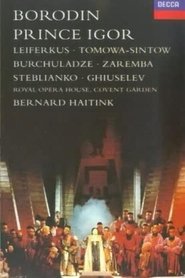 TV movie version of the famous...
TV movie version of the famous...